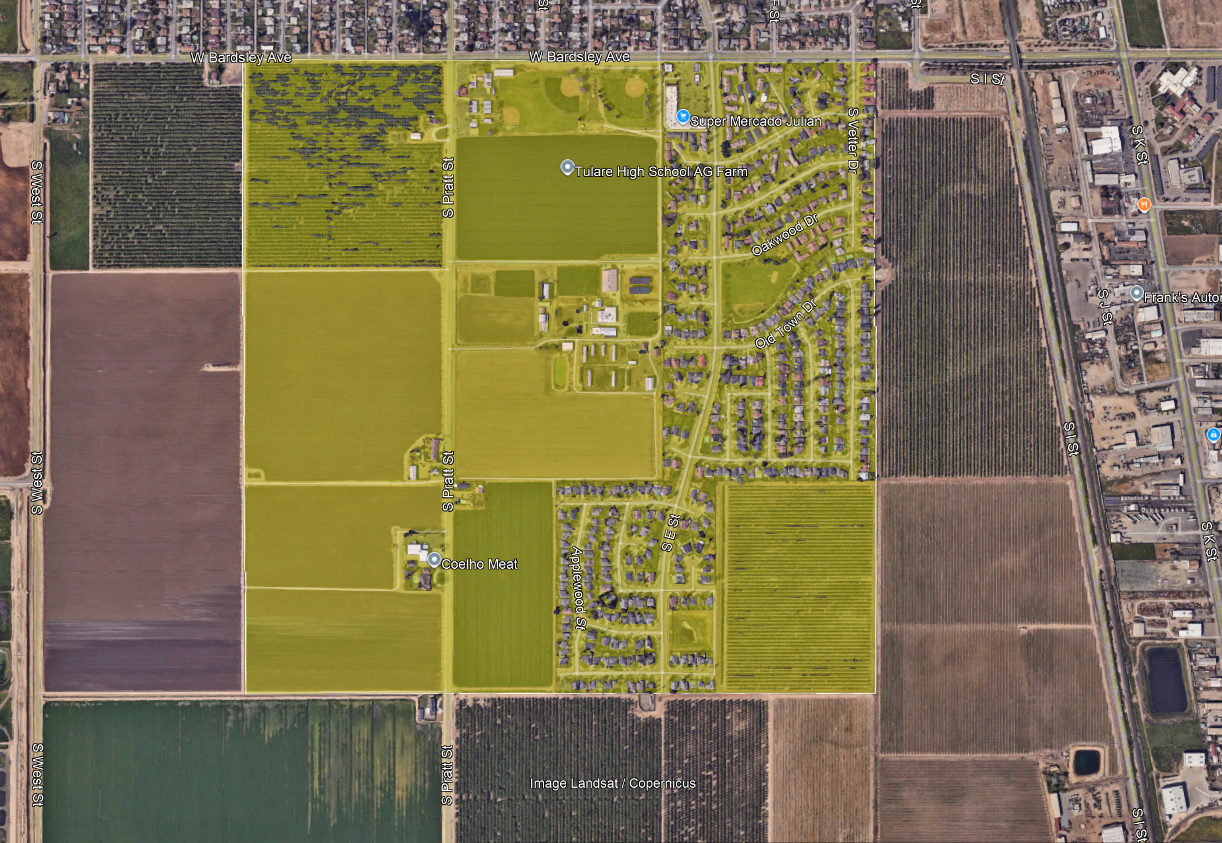Public Notice ~ Adult Mosquito Treatment Scheduled for October 7, 2025
Tulare Mosquito Abatement District has scheduled an adult mosquito treatment in South Visalia and SouthWestTulare because of elevated West Nile virus (WNV) activity in mosquitoes and/or increased vector abundance in the area. The treatments will take place between 3:00 AM and 6:30 AM on October 7, 2025, weather permitting. The District uses adult mosquito treatments to reduce the public health risk of WNV and St. Louis Encephalitis virus to District residents. The decision to treat certain areas is based on many factors, including resources, vector abundance, environmental conditions, and arbovirus activity in mosquitoes.
South Visalia Treatment Map

SouthEast Tulare Treatment Map

Tulare Mosquito Abatement District uses ground ULV to reduce WNV risk. The District applies adult mosquito treatments with ultra-low volume (ULV) equipment that is mounted on a truck. This is referred to as ground ULV. Usually, ground ULV takes place in urban areas to control adult mosquitoes. The adulticides are applied at very low dosages. The low dosages, plus natural degradation by UV light and water, ensure minimal risk. The District uses U.S. Environmental Protection Agency (EPA) registered pyrethroid-based products for ground ULV adulticiding. The District recommends that people who want to avoid exposure stay inside or away from the application area during, and for 30 minutes after, the application.
List of Chemicals used by Tulare Mosquito Abatement District:
AquaDuet Label.pdfAquaDuet-SDS.pdfKontrol 4-4 Label 6-3-20.pdfKontrol 4-4 SDS 8-17-22.pdfFyfanon ULV Label 8-20-20.pdffyfanon_ulv_moquito_sds-2.pdf
Residents can help reduce mosquito abundance and disease risk. Mosquitoes need standing water to lay their eggs and develop into adults. Mosquito larvae can take as little as 5-7 days to develop into adult mosquitoes. Dumping any water that lasts for more than 3 days will get rid of mosquito larvae before they can develop into biting adults. Neglected swimming pools, fountains, potted plant trays, and pet water bowls are all common household sources of standing water. District residents can reduce mosquito bites by using an EPA-registered insect repellent.
